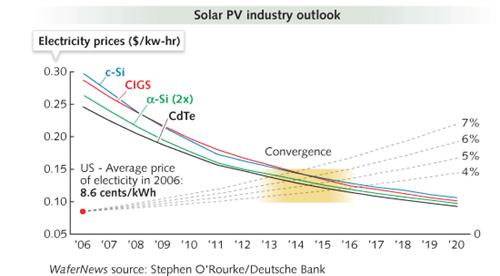Since mostly we mostly use fossil fuels simply to create energy, getting rid of most of that use actually wouldn't propably be quite the big deal as it's been made out to be.
The price of solar power is closing in on average electricity price fast, and should reach so called grid parity (cost competitiveness with other industry standard sources) within the decade in a lot of places.
India and Italy are already there, according to Deutche Bank analysts.

Electric cars are already easily good enough to fill most of our driving needs too.
With a combination of solar and nuclear we could stop burning coal for energy rather quickly and move to mostly electrical cars within maybe two-three decades. That would go really far in solving this mess.
One problem with this is of course the so-called greens (who generally have done little to earn the name in the last couple of decades), who have created such a hysteria over nuclear energy that the use of it is going down rather than up. With the predictable result that use of coal has steadily been going up. No amount of statistics and facts seems to change people's minds on this, people just go insane over this thing.
Nuclear power seems to be a nice whipping boy for people's bent up worries over the environment. Luckily, the advances in solar energy could actually mean we would not need nuclear in most places.
Speaking as a student of social and economic history; people worry way too much about what it would do to change from a power source to a different one,
or what it would do to our standards of living. Most people's standard of living these days have very little to do with the general rise and fall of productivity in our societies and almost everything to do with how wealth is spread and used. Questions of waste and wealth disparity are much more important than the technology behind our electricity.
Generally speaking, technological changes improve people's quality of living over time. Mostly what would happen is that electricity would propably be cheaper, cars would be quieter and the air would be clenaer, and the media would rant about the other ecological disasters looming around the corner.
Besides, our standards of living are so high, that we could easily take quite a drop without really realizing that something happened... as long as everybody around us took it pretty much equally.
The biggest thing that would happen if we started to change away from coal energy and oil-burning cars would be that some companies and countries would lose huge amounts of wealth and power and others would gain tons of it. This is what usually happens with major technological shifts.
Since the fossil fuel industry doesn't actually employ that much in comparison to it's profits, there's little reason to expect that it would have a major long-term employment effect. It would also propably hurt oil-producing areas much less than coal-producing ones.

